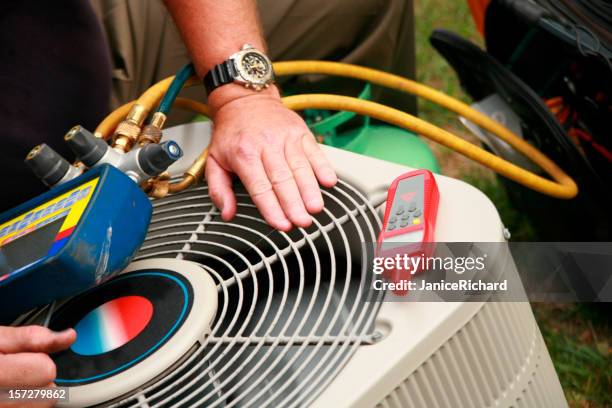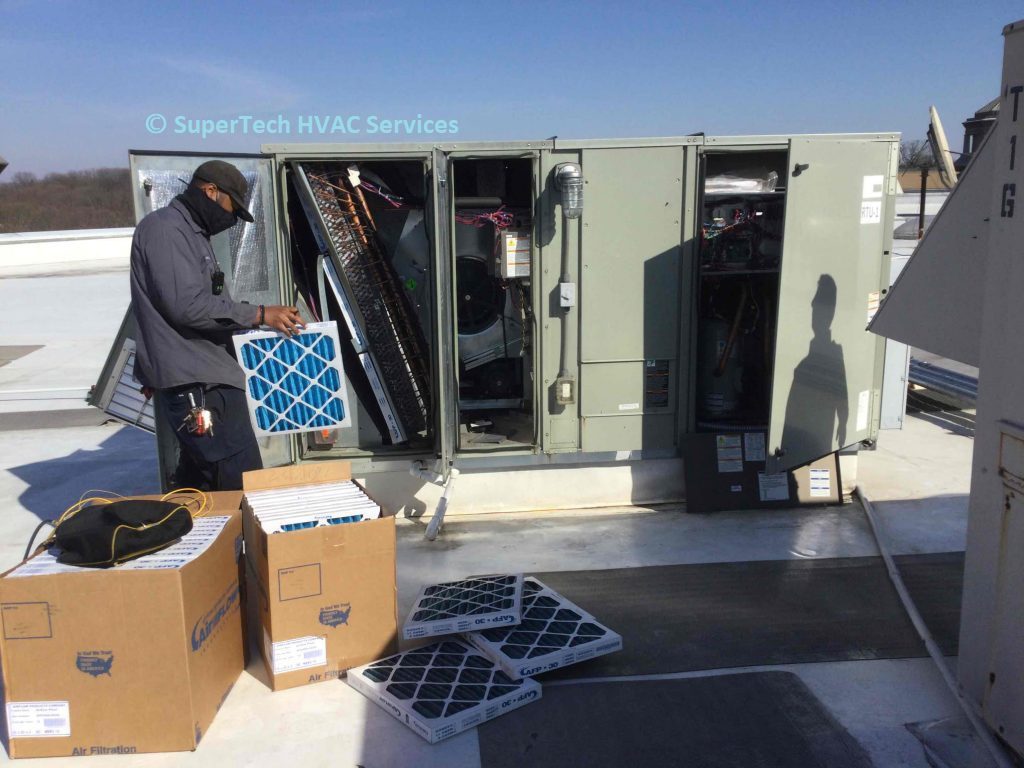Is a furnace replacement Worth It?
Is a furnace replacement Worth It?
Blog Article
Selecting In Between a Heatpump and Heating System: Secret Factors To Consider for Your HVAC Requirements
When evaluating home heating options for HVAC needs, the choice between a heatpump and a furnace can be complicated. Each system supplies distinctive advantages customized to certain climates and energy effectiveness goals. Comprehending these differences is necessary for making an educated option. Trick variables such as installation expenses and environmental influence better make complex the selection procedure. Which alternative truly lines up with one's convenience and sustainability preferences? The adhering to areas will certainly discover these factors to consider carefully.
Comprehending Heat Pumps: Just How They Work and Their Advantages
While many homeowners take into consideration different home heating alternatives, recognizing how heatpump function and their advantages can greatly influence their choice. Warm pumps run by transferring warmth instead of producing it. In the winter season, they remove heat from the outdoors air or ground and transfer it inside your home, while in the summer season, they reverse this process, cooling the home by getting rid of heat outside. This twin performance makes them flexible for year-round environment control.One of the primary benefits of heatpump is their power performance. They utilize considerably less electricity contrasted to typical furnace, potentially resulting in reduced utility costs (heat pump replacement ooltewah tn). In addition, heat pumps have a smaller carbon impact, making them an ecologically pleasant choice. They likewise need much less maintenance than conventional systems, contributing to long-term expense financial savings. In general, understanding the mechanics and advantages of heatpump can help homeowners make notified choices regarding their home heating and cooling needs
Checking Out Heating Systems: Types, Operation, and Advantages
Heaters come in numerous types, including gas, electric, and oil designs, each with distinct operational systems. Understanding these distinctions is necessary, as they influence efficiency and heating efficiency. In addition, heating systems use countless benefits, such as regular warmth outcome and integrity in colder climates.
Sorts of Heaters
Home heating systems can differ considerably in design and procedure, with heating systems being a prominent choice among homeowners. There are several kinds of heaters, each making use of different gas sources and modern technologies. Gas furnaces are common, leveraging natural gas to create heat successfully. Electric furnaces, on the other hand, utilize electric resistance to create warmth, often favored for their straightforward setup. Oil furnaces, while less typical, are reliable in areas with minimal gas gain access to (heat pump installation ooltewah tn). Furthermore, condensing heating systems take full advantage of power performance by recycling and recording exhaust gases. Each kind operates with a system of warmth exchangers and ductwork to distribute warm air throughout a home. Recognizing the differences between these heater kinds is necessary for notified heating and cooling choices
Advantages of Heating systems
For property owners looking for reliable heat throughout chilly months, the advantages of heating systems are considerable. Furnaces provide consistent home heating, making certain even temperature levels throughout the home. They are particularly effective in extreme cool, commonly outshining heatpump in frigid problems. Different types, including gas, electric, and oil heaters, use adaptability to meet varied needs and preferences.Furnaces likewise tend to have reduced initial setup expenses compared to heatpump, making them an extra obtainable alternative for several. Their robust layout adds to a longer life expectancy, with several units lasting over 15 years with appropriate upkeep. Additionally, contemporary heaters are commonly furnished with advanced technology for enhanced effectiveness, which can bring about minimized power costs. In general, heating systems continue to be a reputable choice for efficient home heating.

Power Effectiveness: Comparing Warmth Pumps and Furnaces
When contrasting energy effectiveness between heatpump and heaters, the Seasonal Power Effectiveness Proportion (SEER) plays a crucial role in determining efficiency. Furthermore, a functional expense analysis reveals the long-term monetary effects of each system. Comprehending these elements can assist homeowners in making notified decisions concerning their home heating services.
Seasonal Energy Performance Proportion
Energy effectiveness plays an essential role in the decision-making procedure in between heatpump and heaters, especially when considering the Seasonal Energy Performance Ratio (SEER) This statistics measures the cooling performance of heatpump over a whole cooling period, offering a standardized method to assess efficiency. Greater SEER ratings indicate greater energy effectiveness, translating to reduced power intake and reduced utility bills. In contrast, furnaces are typically evaluated utilizing the Yearly Gas Utilization Performance (AFUE) rating, which reflects heating performance. When comparing these 2 systems, homeowners should prioritize SEER ratings for warm pumps, as they directly impact total power cost savings and ecological sustainability. A thorough understanding of SEER can notably affect the lasting fulfillment and cost-effectiveness of the selected HVAC solution.
Functional Cost Evaluation
Comprehending the operational prices connected with heat pumps and heaters is essential for home owners examining their choices. Heatpump commonly provide greater energy performance, converting electrical energy right into warmth with minimal waste. This results in reduced month-to-month utility bills, specifically in moderate environments. On the other hand, traditional heaters, especially gas versions, might have lower upfront prices however can sustain higher operational costs over time as a result of fuel costs and performance ratings.Moreover, heatpump can operate as both heating and cooling systems, possibly minimizing the demand for different heating and cooling units. While first investments for heat pumps might be higher, their lasting cost savings in power performance can make them a more cost-efficient choice for lots of families. Cautious evaluation of local energy prices is necessary to figure out the ideal option.
Setup Expenses: What to Expect for each and every Heating System
Setup expenses for home heating systems can differ considerably between heatpump and heaters, affecting homeowners' decisions. Warm pumps generally have greater upfront setup expenses, normally varying from $3,500 to $8,000, relying on the device dimension and complexity of setup. This includes the outside system, indoor handling system, and required ductwork modifications. On the other hand, heating systems have a tendency to have lower initial prices, balancing in between $2,500 and $6,000, which can be appealing for budget-conscious house owners. Nevertheless, setup expenses can increase if comprehensive ductwork is required.Moreover, the option of fuel type for furnaces-- gas, propane, or electrical-- can additionally affect setup prices. While heat pumps offer energy performance, their first financial investment may hinder some customers. Eventually, reviewing setup costs along with long-lasting savings and performance will assist homeowners in making educated decisions concerning their heating systems.
Environment Considerations: Which System Executes Better in Your Location
Exactly how do climate problems influence the efficiency of home heating systems? The performance of heatpump and heaters can vary substantially relying on the regional climate. In modest environments, warmth pumps succeed by efficiently transferring heat from the outdoors air, making them an energy-saving alternative. Their efficiency diminishes in incredibly chilly temperatures, where they may struggle to extract sufficient warmth. Alternatively, furnaces, particularly gas versions, give reputable and regular warmth no matter outside problems, making them better in cooler regions.In areas that experience milder winter seasons, warmth pumps can run effectively year-round, offering both heating and air conditioning. On the other hand, areas with severe winters months frequently benefit from the toughness of heating systems. Inevitably, understanding the local climate is important when making a decision in between a heatpump and a heating system, as it directly affects their operational efficiency and overall efficiency.
Upkeep Needs: Long-Term Take Care Of Warmth Pumps vs. Furnaces
While both heatpump and heating systems require normal maintenance to guarantee peak efficiency, their certain needs and treatment routines vary substantially. Heaters typically need much less frequent attention, with annual why not find out more inspections being sufficient to look for gas leakages, tidy filters, and evaluate general functionality. Their less complex layout usually enables for straightforward repairs.In comparison, heatpump require biannual maintenance as a result of their double duty in heating and air conditioning. This includes cleansing coils, examining refrigerant degrees, and guaranteeing that both the outside and interior devices work at their ideal. Furthermore, heatpump maintenance usually includes even more detailed components, making expert maintenance essential.Neglecting maintenance can result in lessened efficiency and boosted power costs for both systems. Ultimately, home owners need to consider these long-lasting treatment needs when choosing between a heatpump and a heating system, as positive maintenance can expand the life expectancy and performance of either system considerably.
Environmental Effect: Picking a Lasting Home Heating Option
The environmental impact of heating unit is a critical evaluation for property owners looking for lasting choices. Heatpump are usually more energy-efficient than traditional heaters, as they transfer warm instead of produce it, greatly minimizing carbon emissions. By utilizing renewable resource sources, such as geothermal or air-source warmth pumps, homeowners can further lessen their ecological footprint.On the other hand, gas furnaces produce greenhouse gases and contribute to air pollution, though they frequently supply higher heat output. Developments in modern technology have actually led to the advancement of high-efficiency heaters that decrease emissions.Ultimately, choosing a heating system entails evaluating efficiency versus environmental influence. Property owners are encouraged to mirror on regional power sources and incentives for sustainable systems, guaranteeing a choice that lines up with both personal comfort and ecological obligation. The decision affects not only immediate comfort but also long-term sustainability and ecological health and wellness.
Frequently Asked Concerns
How Lengthy Do Warmth Pumps and Furnaces Typically Last?
The life expectancy of heat pumps normally ranges from 15 to twenty years, while heaters can last between 15 to three decades. Regular upkeep considerably impacts their longevity and effectiveness in giving home heating solutions.
Can I Utilize a Heatpump in Incredibly Cold Climates?
Warm pumps can run in incredibly cold environments, but their performance decreases as temperatures decrease. In such problems, supplemental heating resources might be essential to maintain site comfy indoor temperature levels and guarantee peak performance.

What Is the Noise Degree of Warm Pumps Versus Furnaces?
The noise degrees of warmth pumps and heating systems differ considerably. Typically, heatpump operate more silently than typical heating systems, making them more suitable for those delicate to seem, while furnaces might produce louder functional noises during home heating cycles.
Are Heat Pumps Suitable for Both Cooling And Heating?
Warm pumps are certainly ideal for both cooling and heating (heat pump replacement ooltewah tn). click to investigate They work by transferring warm, providing effective temperature control year-round, making them a flexible selection for house owners seeking an all-in-one HVAC remedy
What Dimension Heater Do I Need for My Home?
Establishing the proper dimension heating system for a home needs evaluating aspects such as square video, insulation high quality, neighborhood climate, and the home's design. Consulting a specialist can guarantee an accurate evaluation and ideal comfort. Warm pumps typically use greater energy performance, converting electrical energy right into heat with marginal waste. In moderate environments, heat pumps stand out by successfully moving heat from the outside air, making them an energy-saving choice. On the other hand, heaters, particularly gas designs, supply regular and dependable warm regardless of outside problems, making them more effective in cooler regions.In locations that experience milder winters months, warmth pumps can run properly year-round, providing both home heating and cooling. Warmth pumps are generally more energy-efficient than standard heaters, as they move warm instead than generate it, significantly lowering carbon exhausts. By using eco-friendly energy sources, such as geothermal or air-source warmth pumps, home owners can additionally minimize their environmental footprint.On the other hand, all-natural gas heating systems emit greenhouse gases and contribute to air contamination, though they typically provide greater warmth result.
Report this page